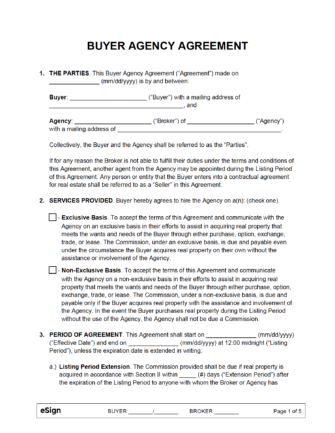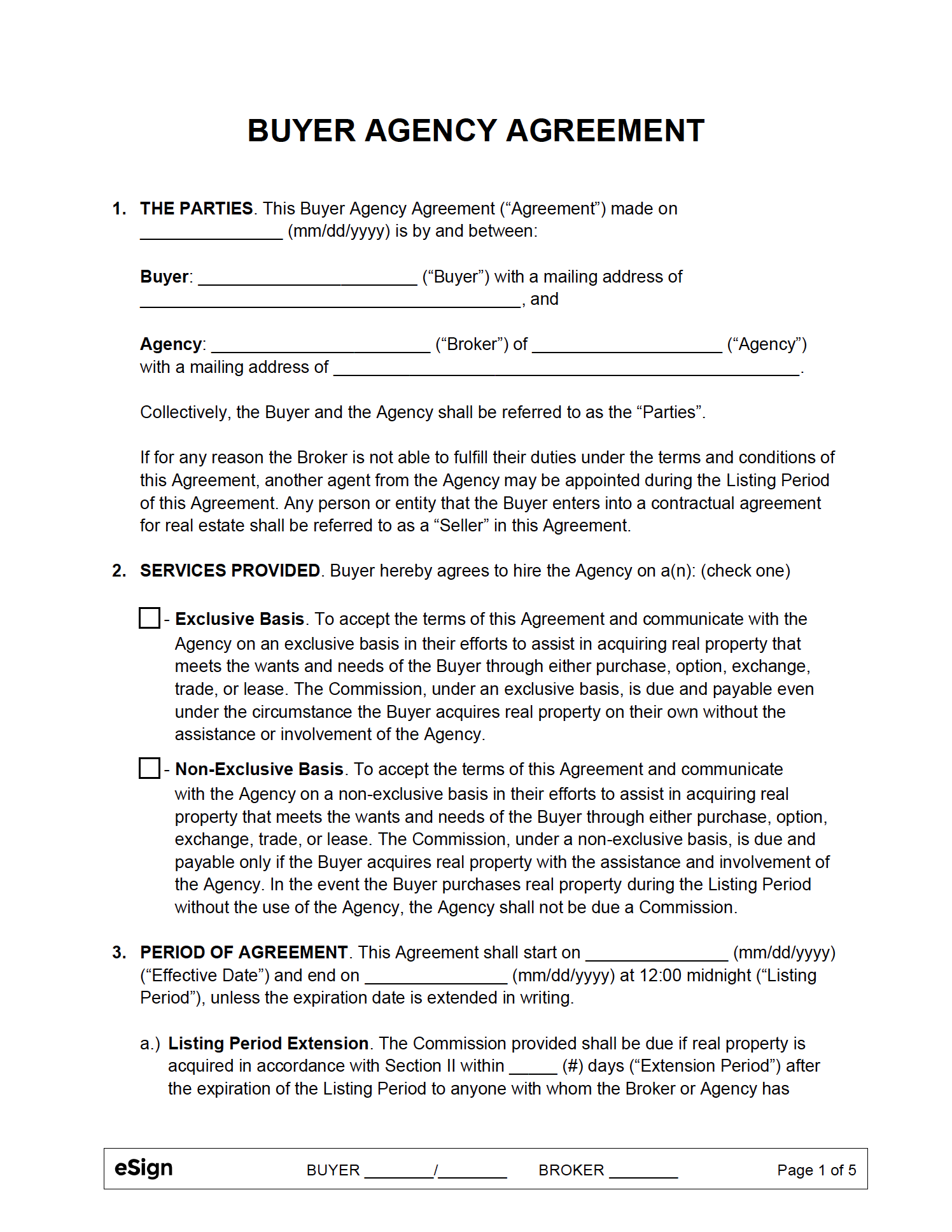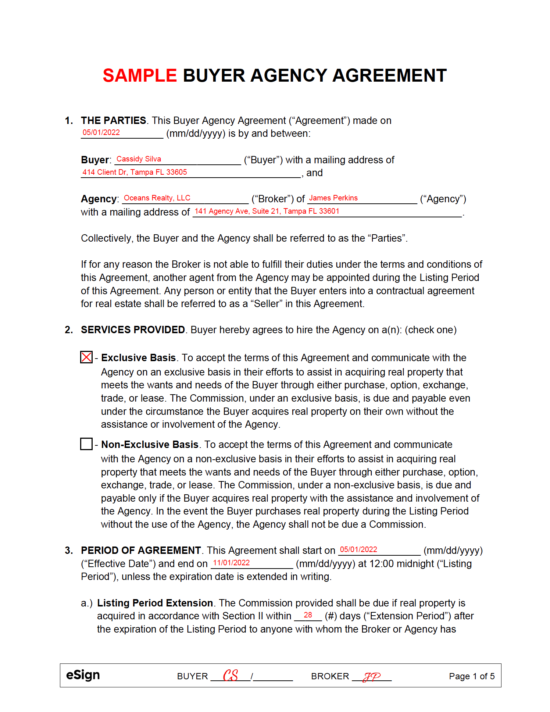
Contents |
What is a Buyer’s Agent Agreement?
A buyer’s agent agreement is a legal form used in real estate to outline how an agent and their client will delve into the home-buying process. It identifies what needs to occur in order for the agent to receive their commission, whether they are the buyer’s only agent (i.e., an “exclusive” agreement), and if dual-agency is permitted, among other important clauses. The agreement is especially important for agents, as it prohibits their client from signing a contract with another agent “on a whim,” resulting in months of hard work going uncompensated.
What does a Buyer’s Agent do?
A buyer’s agent assists their clients through every step of the home-buying process, which includes providing the following services:
- Learning about their client’s interests and preferences
- Researching potential properties & scheduling showings
- Educating their clients on the entire process
- Showing their clients various properties of interest
- Presenting offers and negotiating on behalf of their clients
- Preparing documents and handling the closing process
What’s Included
The form contains twenty (20) clauses, which cover important information on the parties, their duties and obligations to one another, and the length of the agreement.
Buyer + Agency Info
This clause is found in almost all real estate contracts. It serves the purpose of identifying the date the document was written as well as the names and addresses of the buyer and the agent/agency.
Exclusivity
Arguably one of the most important sections in the agreement, the “exclusivity” clause determines whether the buyer is limited to working with one (1) agent, or if they can enter into contracts with other agencies as well.
Listing Period
Establishes when the contract will officially begin and end. Also contains an area for establishing a “listing period extension,” which is a period of time (e.g., 30 days) after the end of the listing period where the agent may be owed a commission if the buyer purchases a property. The agent is only guaranteed a commission during the extension period if they spoke to or received information from the seller of the property that the buyer purchased.
Compensation
Covers how much the agent is paid should their client successfully purchase a property that they helped them find. The section contains four (4) subsections, which cover 1) the amount the agent would be paid if the property is listed (has a seller’s agent), 2) the amount they’d receive if the property is unlisted, 3) if the agent will require a retainer (and if so, the amount of the retainer), and 4) the commission the agent would receive if they find the buyer a property that they end up renting.
Buyer’s Identity
A simple clause that lets the buyer choose whether or not they want their agent to keep their identity secret when presenting offers on properties.
Dual Agency
This clause allows the buyer to either allow or restrict their agent from acting as a dual agent. “Dual agency” refers to the buyer’s agent representing both the seller and the buyer in a transaction; it is often considered “risky” due to the potential for a conflict of interest and is prohibited by law in some states. This can occur when the seller does not have their own agent due to selling the property on their own (FSBO).
Sample
Download: PDF


